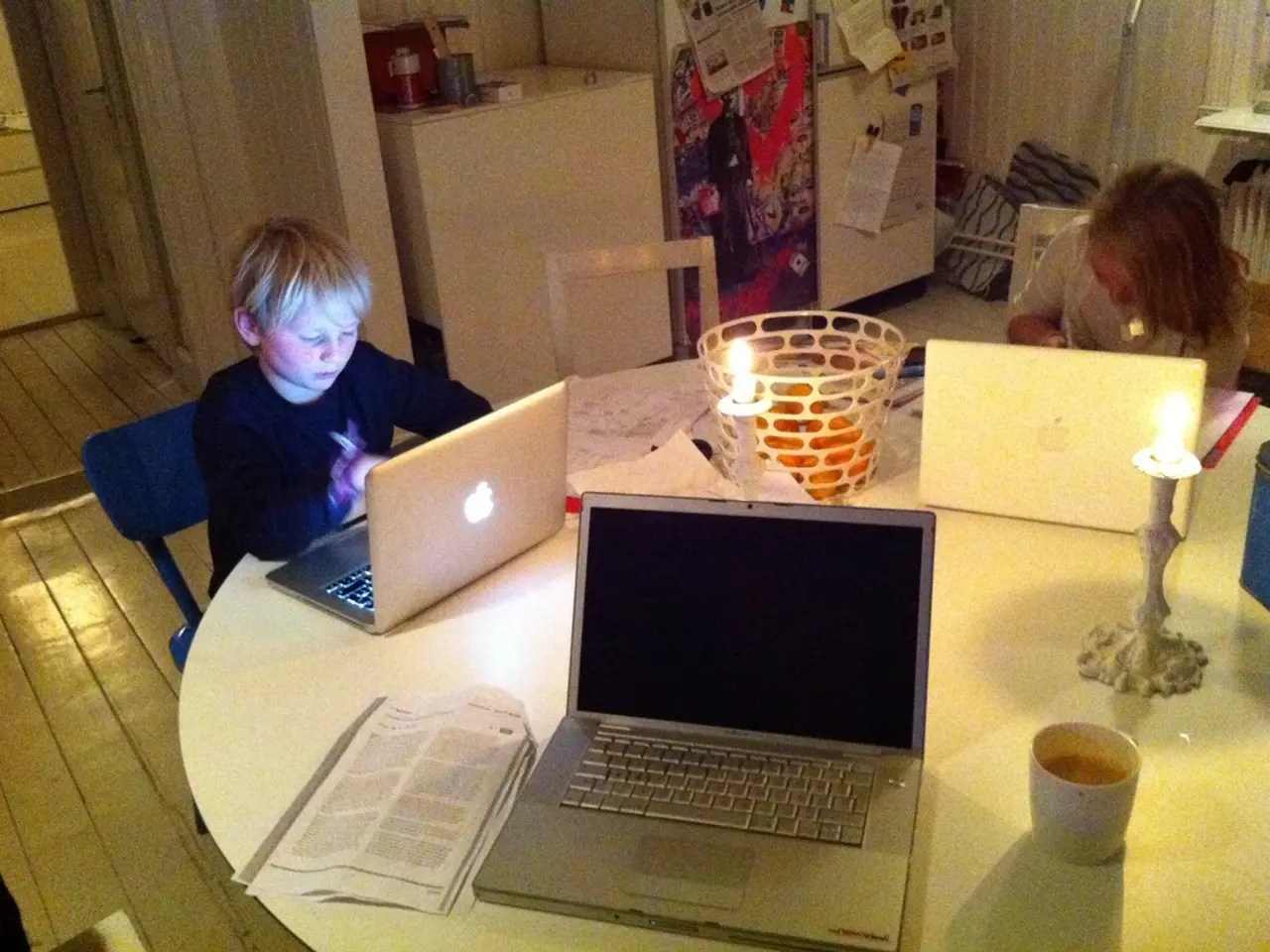Strategies for Home Study Success for Nigerian Children: Expanding Learning Beyond School Walls
In the realm of home learning, an engaging, supportive, and creative environment plays a pivotal role in shaping the academic success of Nigerian children. Here are some practical strategies that integrate creativity, critical thinking, and independent learning, while being tailored to the local context.
**Parental Engagement and Empowerment**
Encourage parents to become active participants in their children’s education by leading simple, play-based learning activities at home. These can include storytelling, counting games, scavenger hunts for shapes or colours, and creative arts using household materials. Parenting workshops can also equip parents with cost-free methods to stimulate children’s cognitive, social, and emotional development.
**Homework as a Learning Tool**
Use homework to encourage independent exploration and critical thinking. Parents should review homework with children, offering support and feedback. This collaboration helps track progress and address areas needing improvement.
**Skill-Based and Flexible Learning**
Assign projects that require creativity and problem-solving, such as building models from recyclables, writing stories, or designing simple science experiments. Flexible scheduling allows children to learn at their own pace, promoting independent learning.
**Use of Technology and Home-Based Assessments**
Utilize low-tech solutions like text messages, print materials, and simple assessment tools, like quizzes and checklists, to track progress and inform teaching strategies. Peer learning can also be encouraged through small study groups with neighbours or family members.
**Continuous Professional Development for Mentors**
Invest in ongoing training for teachers and parents to mentor children effectively. Teachers can share best practices and resources for home learning, while parents learn how to support independent and creative thinking.
These strategies are adaptable to the Nigerian context and can be scaled to reach children in both urban and rural settings. By empowering parents, incorporating creative activities, and fostering a supportive learning environment, we can help children thrive and flourish.
The impact of a supportive learning environment extends far beyond the classroom. Incorporate family games that make learning fun and interactive. Incorporating children's interests into learning keeps them engaged. Encourage family participation in learning to reinforce concepts and foster a supportive environment. Celebrating small victories fosters a supportive learning environment.
By becoming proactive, parents can significantly enhance their children's learning experiences. Regular observations capture a child's learning style and behaviour. Kids become responsible for their learning through self-assessment. Collaboration enhances learning and creates a rich learning ecosystem. Start a family book club where everyone reads the same book.
Recognizing various learning styles can personalize education. Auditory learners prefer listening to instructions and discussions. Providing timely feedback is vital for learning. Involve other family members in educational activities to strengthen family bonds while supporting your child's educational journey.
Engaging in discussions allows children to express their thoughts, encouraging critical thinking and reasoning. Designate specific roles for each family member in learning activities. Tailoring education methods leads to better engagement and understanding. Establishing clear goals can aid in assessing children's learning outcomes.
By teaching your children to seek answers through research and dialogues, you're fostering a love for learning. Use resources such as books, educational games, and online platforms to enrich their learning. Recognizing and celebrating the diversity within Nigerian culture and teaching children about distinct practices and traditions in different regions is essential for promoting understanding and depth in discussions.
By fostering curiosity, encouraging questions, and adapting to individual interests and learning styles, you're creating an environment where children can ask questions, express their views about culture, and grow intellectually. With your proactive involvement, you can empower your children to achieve their fullest potential. It not only shapes academic success but also builds critical life skills.
- Parents, actively engage in children's education by leading home-based learning activities, such as storytelling, counting games, and creative arts, to enhance their cognitive, social, and emotional development.
- Integrate homework into the learning process for independent exploration and critical thinking, fostering a collaborative learning environment with parents offering support and feedback.
- Assign projects that require creativity, problem-solving, and flexibility, like building models, writing stories, or designing simple science experiments, to promote independent learning and critical thinking.
- Use technology, like text messages, print materials, and assessment tools, to track children's progress and adapt teaching strategies, while also encouraging peer learning through small study groups.
- Ensure ongoing professional development for teachers and parents to mentor children effectively, enabling them to share best practices and resources for home learning.
- Strategy adaptability allows for effective learning in both urban and rural settings, empowering children and fostering a supportive learning environment beyond the classroom.
- Incorporate family games that make learning fun and interactive, adapting learning methods to children's interests, and involving all family members to reinforce concepts and create a supportive learning environment.
- Recognize and tailor learning approaches to accommodate various learning styles, such as auditory learners valuing listening and timely feedback, to improve children's engagement and understanding.
- Foster intellectual growth by encouraging children to seek answers through research, dialogues, and critical discussions, while promoting diversity within Nigerian culture and teaching children about unique practices and traditions in different regions.




